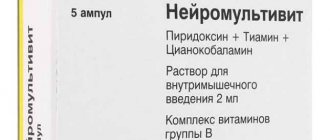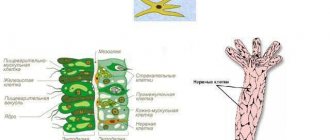What are character accentuations?
By accentuation , the outstanding psychiatrist understood pronounced personality traits .
Experts from different countries are actively studying accentuations due to the fact that various character and temperament traits, expressed strongly, beyond measure, create conditions for the development of certain mental or psychosomatic disorders. Leonhard's technique is used for diagnostic and psychocorrective purposes. Also, the personality typology proposed by Leonhard is of interest to many people interested in psychology. Take the character accentuation test and find out which features of which types of accentuations according to Leonhard are most pronounced in you.
Knowing the methodology for diagnosing the character and character traits of a person of one type or another, you can determine your type of accentuation, as well as the types of accentuation of others. It is worth keeping in mind that some traits appear most clearly when a person is “unsettled”
when his life is not going the way he wanted, not as planned. “A friend in need is a friend in need” - in a modified form, this proverb is also applicable to the analysis of accentuations.
Sensitive, schizoid and hysterical types
Representatives of the sensitive type are characterized by high sensitivity to any events, both frightening and joyful. Teenagers avoid active and active games and do not like large companies and pranks. They are shy and timid with strangers and give the impression of withdrawn people. At the same time, they become loyal and good comrades for those truly close to them. They do not like to communicate with peers, preferring people much older or younger than themselves. They treat their parents with love, they are afraid to upset them, so they are always obedient.
All this leads to the likelihood of developing an inferiority complex; it is difficult for them to adapt to a new team. They place inflated moral demands on themselves and others. They treat complex activities with reverence and are very responsible.
Adolescents of the schizoid type prefer loneliness to communication with peers, or, in extreme cases, the company of older people. They are not interested in communicating with other people, remaining demonstratively indifferent to it. They often do not understand their experiences and feelings, and do not show sincere sympathy for others. They also hide their own emotions; as a rule, they lack mutual understanding with their peers, which is why they treat them with hostility.
Representatives of the hysterical type love to have all attention paid to them; they are artistic and demonstrative by nature. When someone else is praised in their presence, they strive to occupy an exceptional position, attract everyone’s attention, and influence others as much as possible
They often become organizers of some projects and events. At the same time, their organizational skills are extremely undeveloped; it is difficult for them to gain authority among their peers and become their informal leaders, although they constantly want this.
Types of character accentuations
Leonhard identified 12 types of personality accentuations , but now the main emphasis, as a rule, is on the first ten. Four types make up a conditional group, which includes character accentuations :
- demonstrative;
- pedantic;
- stuck; stuck
- excitable.
Six more types belong to another conditional group, which consists of accentuations of temperament :
- hyperthymic;
- hypothymic, or dysthymic;
- cyclothymic;
- exalted;
- anxious-fearful;
- emotive.
Two more types are personality accentuations : extroverted and introverted types.
Moreover, the understanding of these terms according to Leonhard differs from the understanding of other psychologists. K. Leongard in his book notes that a person, especially a young person, can combine certain traits that are characteristic of different types of personalities. On the other hand, the same quality can mean signs of different types. For example, both a person belonging to the stuck type and someone who is a hyperthymic person can waste energy in order to achieve a set goal.
Hyperthymic and cycloid
The hyperthymic type is characteristic of people who are poor strategists, but brilliant tacticians. They are enterprising, resourceful, active, and easily navigate changing circumstances. Due to this, they can significantly improve their social and professional position and move up the career ladder. But at a certain moment they tend to lose their position due to their inability to calculate certain actions in advance; they often make mistakes in people.
People with the hyperthymic type are sociable, active, enterprising, they are always in a good mood, at least in public. Children are restless, active, often play around and play pranks. Teenagers study unstably and have poor discipline. Because of this, conflicts arise with representatives of the older generation. They always have a lot of superficial hobbies, none of which really interests them. In life, they constantly overestimate their capabilities.
Cycloid accentuation is characteristic of apathetic and irritable people. As children, they constantly want to be left alone and do not like to play with their peers. They take any troubles very hard, and in response to any comments they become very irritated, even if they are the most harmless. Adolescents with cycloid accentuation experience dramatic mood changes.
In adulthood, the sharpest edges are smoothed out, but some can get stuck on their complexes, turning into melancholic and depressed individuals. Often their mood depends on the time of year.
Unstable, emotionally labile and epileptoid types
Teenagers with unstable personality types constantly gravitate towards idleness and entertainment. They have no life goals and interests in life; they care little about the future. In most cases, those around them characterize them as people going with the flow.
Children with an emotionally labile personality type are characterized by strong and regular mood swings, and their behavior is unpredictable for others. It is noteworthy that any little things can become the reason for such mood changes. For example, an unfriendly phrase or a sidelong glance. When they are in a bad mood, adolescents with an emotionally labile personality type feel the need for support from loved ones. They feel well how others treat them.
At an early age, representatives of the epileptoid type are very tearful. But when they grow up, they themselves begin to offend the little ones, preferring to mock those who are not able to fight back. They are characterized by cruelty, power and pride. In the society of other children, they strive not just to become leaders, but real rulers. In groups that take control, they establish the most rigid, sometimes even autocratic, orders. They are able to please management and often occupy influential positions due to this.
Conformal, psychasthenic and paranoid types
Minors of the conformist type do not have their own opinions, they are not critical of themselves, and lack initiative. They are very easy to subordinate to some authority or group of people. The life attitude of most of them in any situation can be characterized by the words “be like everyone else.” At the same time, they are very conservative and prone to moralizing. To protect their interests, they are even ready to commit very unseemly acts, for which they find explanation and justification.
Adolescents of the psychasthenic type are prone to deep introspection, reflection, and assessment of the behavior of the people around them. In terms of their intellectual development, they are ahead of their peers; their indecision is combined with peremptory views and judgments, and self-confidence. When they need attentiveness and discretion, they are often prone to impulsive actions. With age, representatives of the psychasthenic type experience little change. This often ends in drug or alcohol use. In relationships, they are petty and despotic, this prevents them from normal communication with people around them.
It is interesting that the paranoid type is not always included in Lichko’s classification. The fact is that its main manifestations appear only after 30, or even 40 years. In adolescence and especially childhood, its representatives are usually classified as schizoid or epileptoid accentuation. In adulthood, inflated self-esteem and the idea of one’s own exclusivity begin to come to the fore. They differ from delusional ideas only in that others perceive them as quite real, albeit unreasonably exaggerated.
German psychiatrist classification
Leonhard determined types of character in psychology by assessing a person’s communication style with the people around him. At the same time, he developed and presented independent types of characters.
- Hyperthymic type. Such people are distinguished by their talkativeness, extreme contact, expressiveness of facial expressions and gestures. A person may regularly deviate from the original topic of conversation in communication; he may constantly have occasional conflicts with people around him due to the fact that he is too frivolous about family and work responsibilities. As a rule, such people themselves become initiators of conflicts. At the same time, they have many positive features that attract partners for communication. This is a thirst for activity, energy, initiative, optimism. Repulsive traits include a tendency to immoral acts, frivolity, and increased irritability.
- Dysthymic type. The person is taciturn, uncommunicative, pessimistic about the surrounding reality, and leads the most secluded lifestyle. At the same time, he values his friends highly and is ready to obey them.
- Cycloid type. He is characterized by regular mood swings, which changes the way he communicates with people around him.
- Excitable type. Such a person is characterized by low contact in communication, slow nonverbal and verbal reactions. Such people are prone to abuse and rudeness, are gloomy and boring, and constantly provoke conflicts.
- Stuck type. These are moderately sociable people, prone to moralizing, and very taciturn. In any business they strive to achieve maximum performance and place increased demands on themselves. Vulnerable and touchy, sensitive to social justice.
- Pedantic type. They practically do not enter into conflicts and generally behave passively. At work they make many claims and demands on others, and behave like bureaucrats.
- Anxious type. People from this group are characterized by timidity and low communication skills. They are predominantly in a depressed mood and feel insecure. They rarely enter into conflicts with others and play an extremely passive role in them.
- Emotive type. Such people prefer to communicate exclusively among a select few. They carry grievances deep within themselves. People around them are attracted by compassion, kindness, and have a heightened sense of duty. At the same time, they are very tearful and sensitive.
- Demonstrative type. These people easily establish contacts with complete strangers, love to be praised, and strive for leadership and power. Demonstrating high adaptability, they are prone to intrigue. At the same time, they irritate those around them with their own self-confidence, boasting, and hypocrisy. They are attracted by their exceptional artistry, courtesy, extraordinary actions and thinking, and are able to captivate others with some idea.
- Exalted type. Amorous and talkative people. They argue constantly, but rarely lead to conflict. They are attentive to friends, altruistic, ready to sympathize and show sincerity. They are repelled by susceptibility to momentary moods and alarmism.
- Extroverted type. These are contact people with a lot of friends and acquaintances. They always have many acquaintances and close friends, they are open to communication and any information. They attract others with their diligence and willingness to listen to another person. Many do not like him because of their frivolity, passion for entertainment, rash actions, and regularly participate in the spread of rumors.
- Introverted type. These are closed people, divorced from reality. They love to be alone. They have strong beliefs about life around them and strict principles. At the same time, they are ready to persistently defend their ideals, even if they are fundamentally wrong and stubborn.
It is worth emphasizing that this classification applies mainly to adults.
Andrey Lichko
In Russian psychology, the typology of character according to A. E. Lichko is very popular. This is a domestic psychiatrist, Doctor of Medical Sciences. He was born in the Leningrad region in 1926. Graduate of the Leningrad Pavlov Medical Institute. His research interests included the treatment and diagnosis of mental disorders in adolescence.
He created his own typology of personalities, relying on the work of Leonhard and his compatriot Pyotr Borisovich Gannushkin. His monograph “Psychopathy and Character Accentuations in Adolescents,” which was published in 1977, was popular. In fact, it still remains a reference book for domestic psychologists and psychiatrists.
He paid great attention to the popularization of science. He was the executive secretary on the editorial board of the Journal of Evolutionary Physiology and Biochemistry, edited the Review of Psychiatry and Medical Psychology named after
V. M. Bekhterev."











